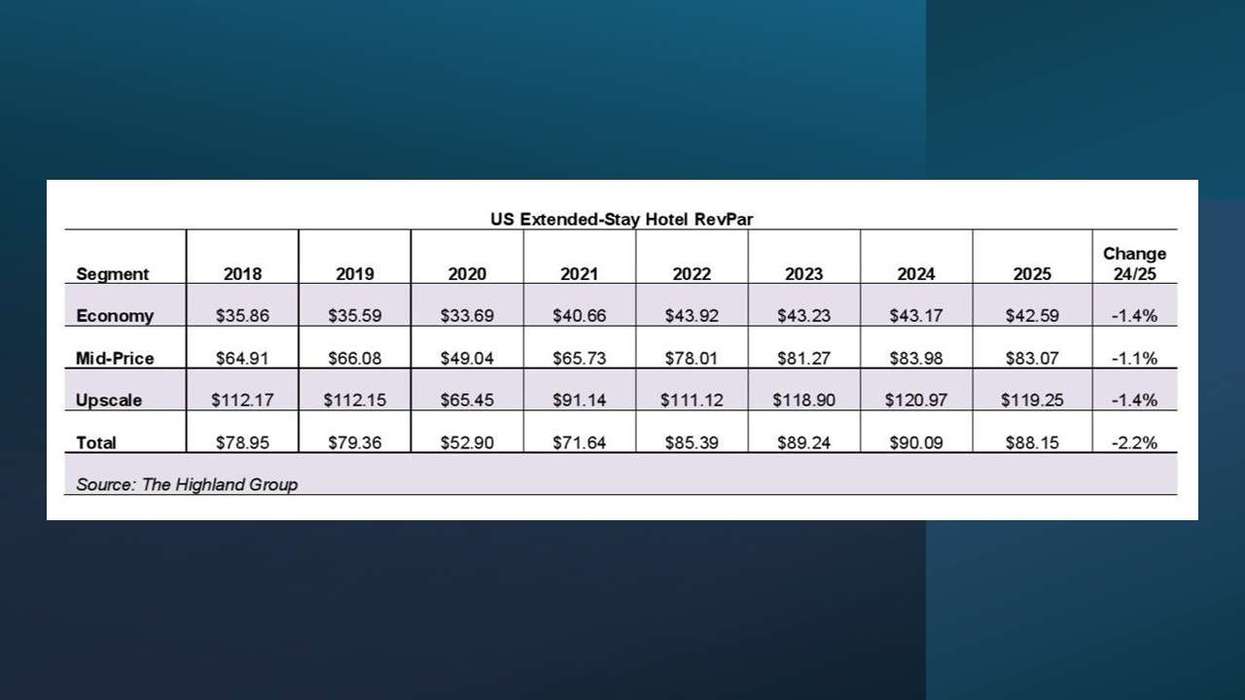STR FILED A motion to dismiss a lawsuit that claims it, along with several major hotel companies conspired to inflate luxury hotel rates. The research firm said in the motion that the seven individuals named as plaintiffs in the lawsuit failed to show a knowing conspiracy to fix prices through STR’s “Forward STAR” program in violation of federal antitrust laws.
The lawsuit, filed in February in federal court in Washington state, alleges that STR, owned by commercial real estate information researcher CoStar Group, and hotel companies including IHG Hotel & Resorts, Marriott International and Hyatt Hotels Corp., entered an exchange of “competitively-sensitive information about their prices, supply, and future plans” in violation of the antitrust provisions of the Sherman Act, according to the lawsuit.
The plaintiffs seek to make it a class-action filing on behalf of every person who stayed at the defendants’ hotels from February 2020 until the present for an unspecified amount. However, STR’s motion claims it fails to provide evidence of any illegal actions and is mistakenly part of a current legal trend.
“This case is about hotel industry benchmarking reports that STR has been producing for over 35 years. Plaintiffs’ allegations, which in some ways attempt to mimic other recent lawsuits aimed at various forms of ‘algorithmic pricing,’ are misdirected at STR reports, which involve neither algorithms nor pricing recommendations,” STR’s motion says. “Instead, STR’s reports only provide customers with benchmarks against occupancy and historical revenue data aggregated and averaged from typically at least five, and often many more, other hotels.”
Four points
The motion calls the lawsuit’s allegations a “fanciful claim” that fails to meet four specific standards to be considered.
- It fails to answer “basic questions” regarding the alleged conspiracy, as required by the Ninth Circuit to plead a Sherman Act Section 1 claim.
- It does not allege any direct or circumstantial evidence of an agreement among the hotel defendants to exchange competitively sensitive information through STR.
- It does not plead any anticompetitive effects from the alleged conspiracy.
- It does not make a sufficient causal connection between plaintiffs’ alleged injury, increased prices for luxury hotel rooms, and the alleged conspiracy.
“STR stands by its long-standing practice of providing the hotel industry with competition-enhancing analysis,” the firm said in a statement. “Since its founding in 1985, STR has been committed to providing the industry with the highest-quality insights, while simultaneously protecting the confidentiality of client data through aggregation and anonymization. STR will therefore vigorously defend itself in the lawsuit.”
Allegations of an alliance to fix prices
Steve Berman, the plaintiffs' lead attorney, did not respond to a request for comment on STR’s motion to dismiss in time for this article.
“Teddy Roosevelt passed the antitrust laws to prevent titans of industry from price fixing in smoke-filled rooms,” Berman previously told Reuters, calling the defendants' conduct the "modern equivalent."
The alleged price fixing happened in major cities including Boston, Chicago, Los Angeles, New York, San Diego, Denver, Washington, D.C., and Seattle. The lawsuit focuses on STR’s “Forward STAR” product that was expanded into many of those markets in April after launching 17 of the country’s 25 largest hotel markets, including Las Vegas, New York City, Los Angeles, Washington, D.C., Boston and Phoenix.
Forward STAR allows hotel property and portfolio users to benchmark the next 365 days of occupancy on the books against the competition and market.
“The purpose of this exchange is for competitors to share ‘super-timely revenue and occupancy data’ so that competitors can ensure they are each getting their ‘fair share’ of revenues,” the lawsuit says. “In other words, the exchange of this information allows participating hotels to set prices higher than they would have been absent this agreement to exchange information. This is price fixing in its modern form and is illegal under the Sherman Act.”
STR requires the information exchange in its contract with participating companies, the lawsuit said.
“A hotel operator has to give information to STR in order to receive benchmarking information back,” the lawsuit said. “The license agreement states that ‘CoStar is under no obligation to provide to any hotel benchmarking deliverables if licensee does not provide the applicable hotel data to CoStar based on such data guidelines and timeframes,’ and its service ‘is subject to and contingent on licensee providing CoStar timely, true, accurate, correct and complete hotel data as required.’”
One of the confidential witnesses cited in the lawsuit is a former software engineer at STR.
“[The witness] stated that ‘almost everybody’ within the hotel industry in the U.S. was an STR client and received STR reports,” the lawsuit said. “Marriott, Hilton and Holiday Inn were all STR clients, just to name a few, she said. CW 2 recalled that STR ‘had very few competitors’ and ‘we were kind of servicing everyone. There wasn’t anyone else that did it.’”






